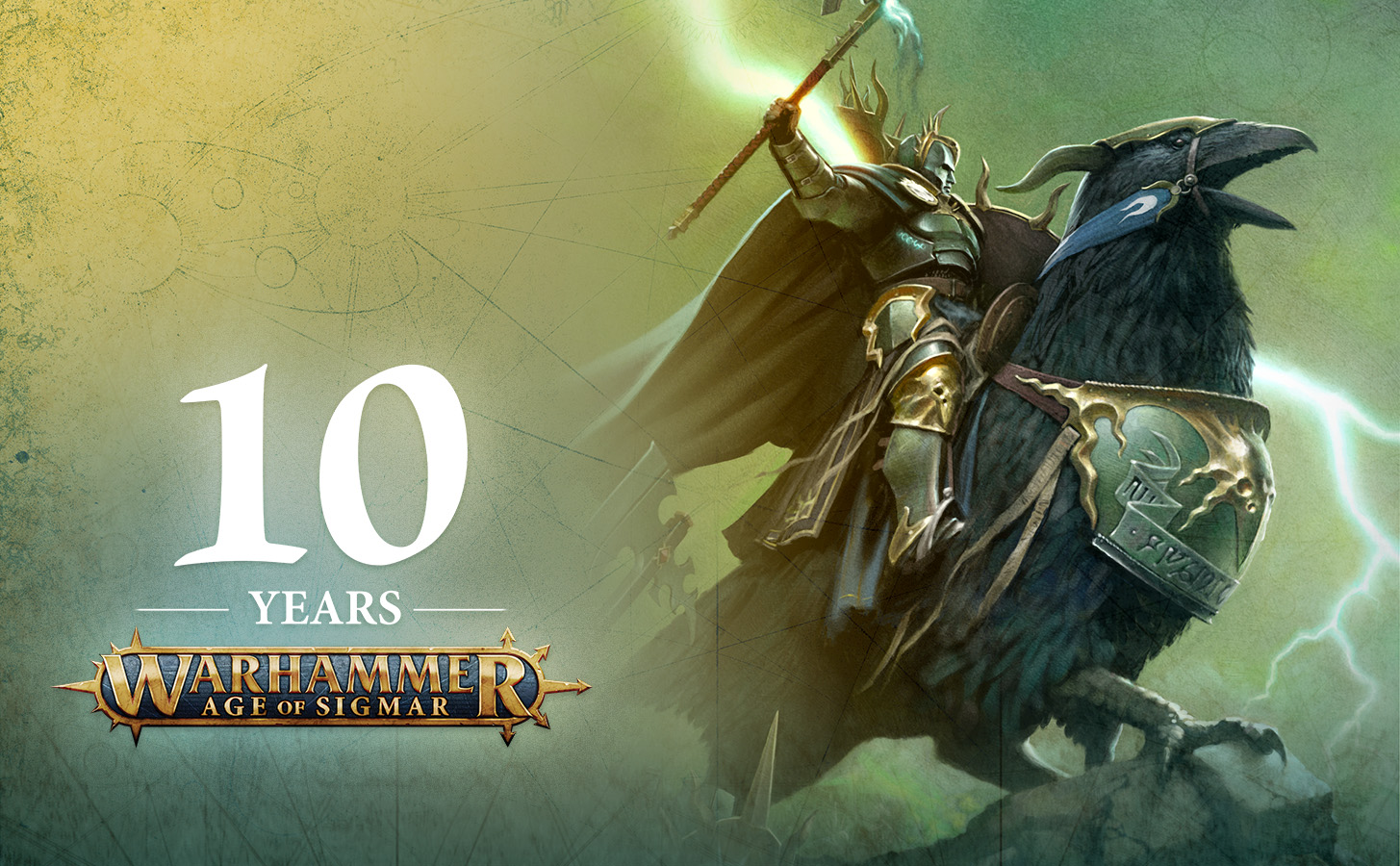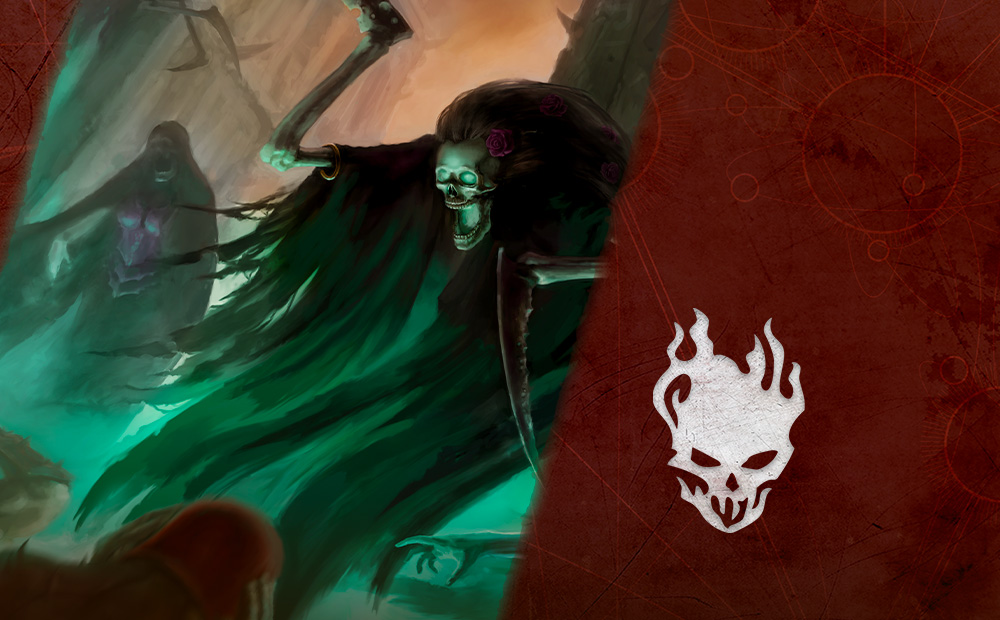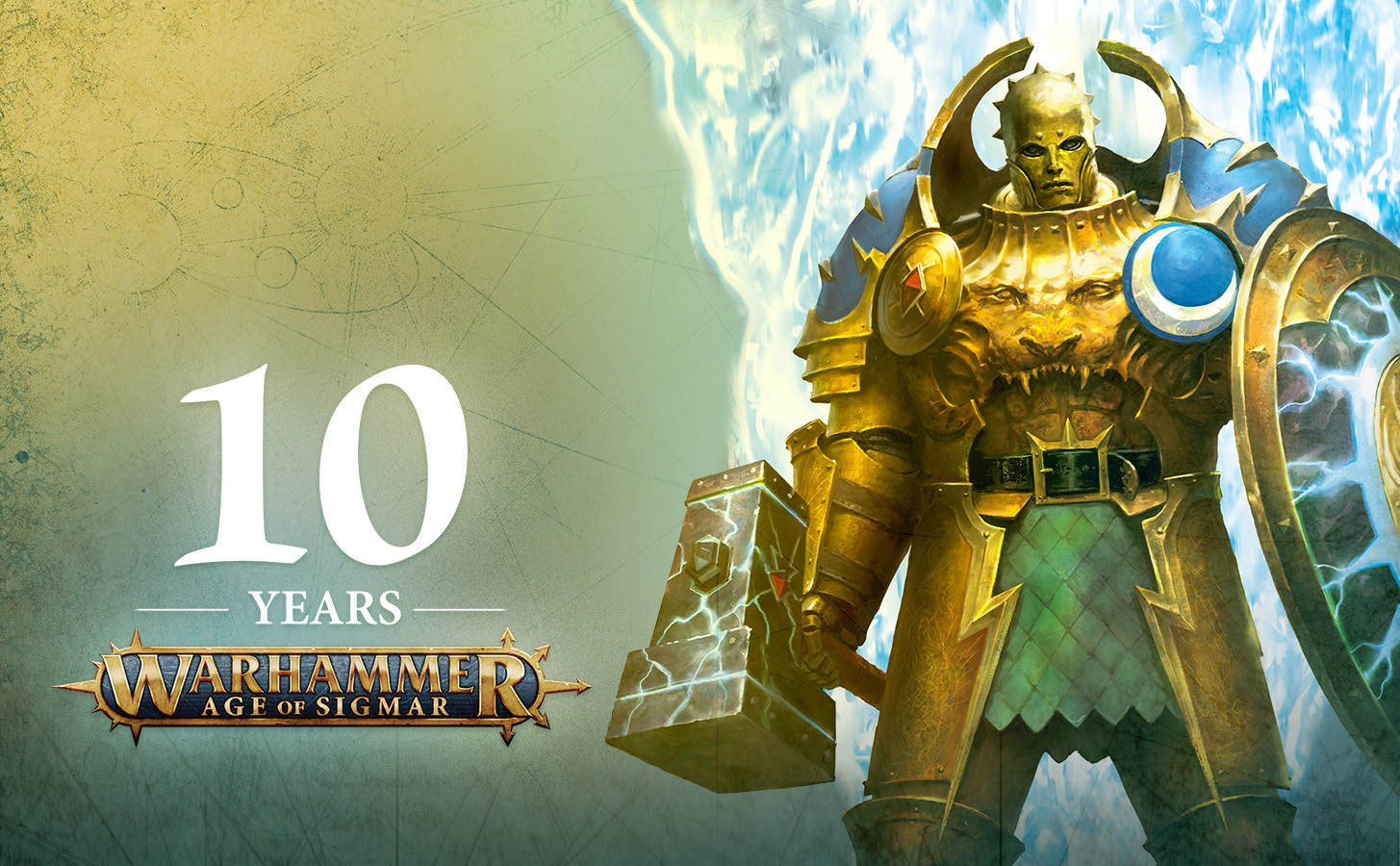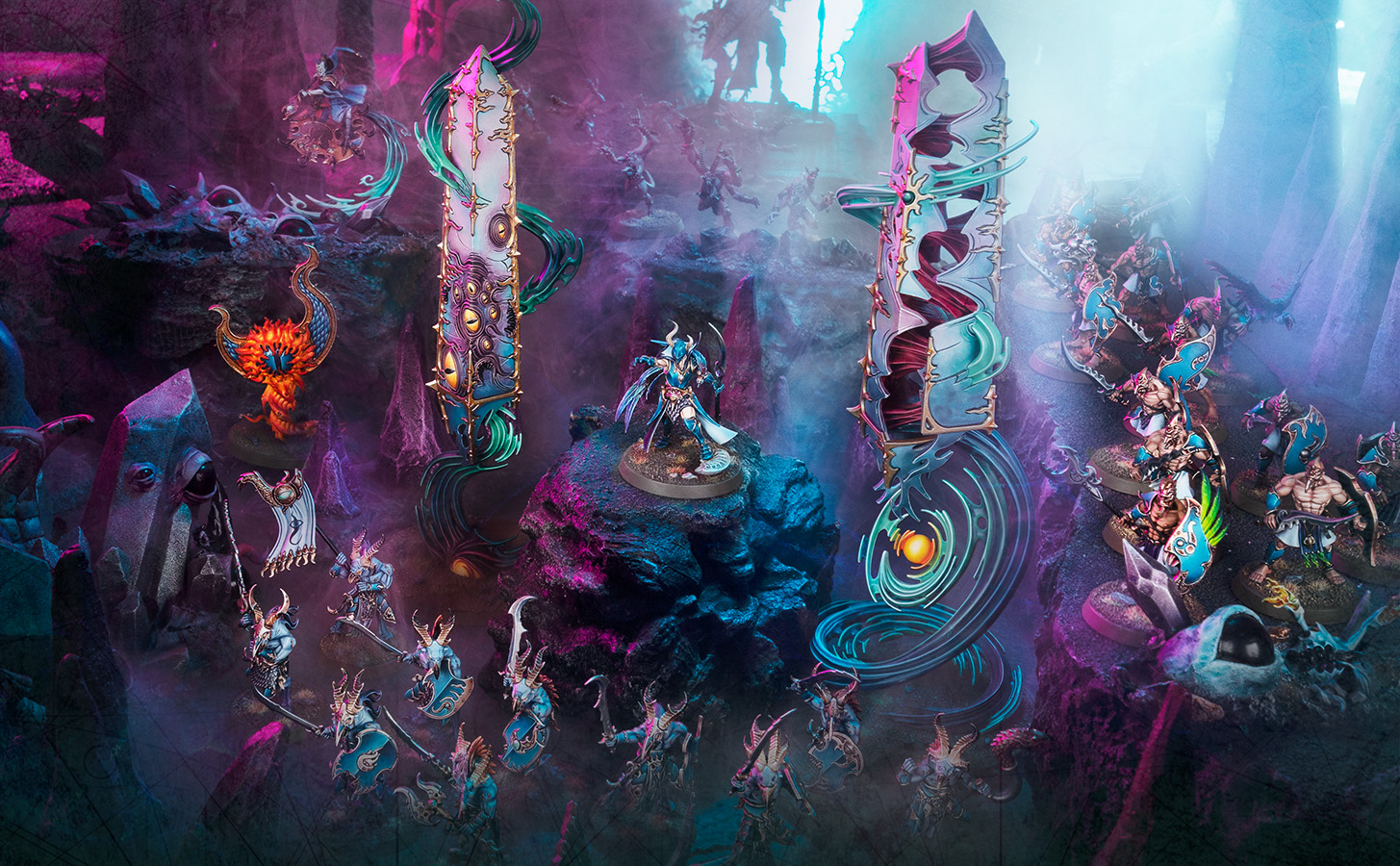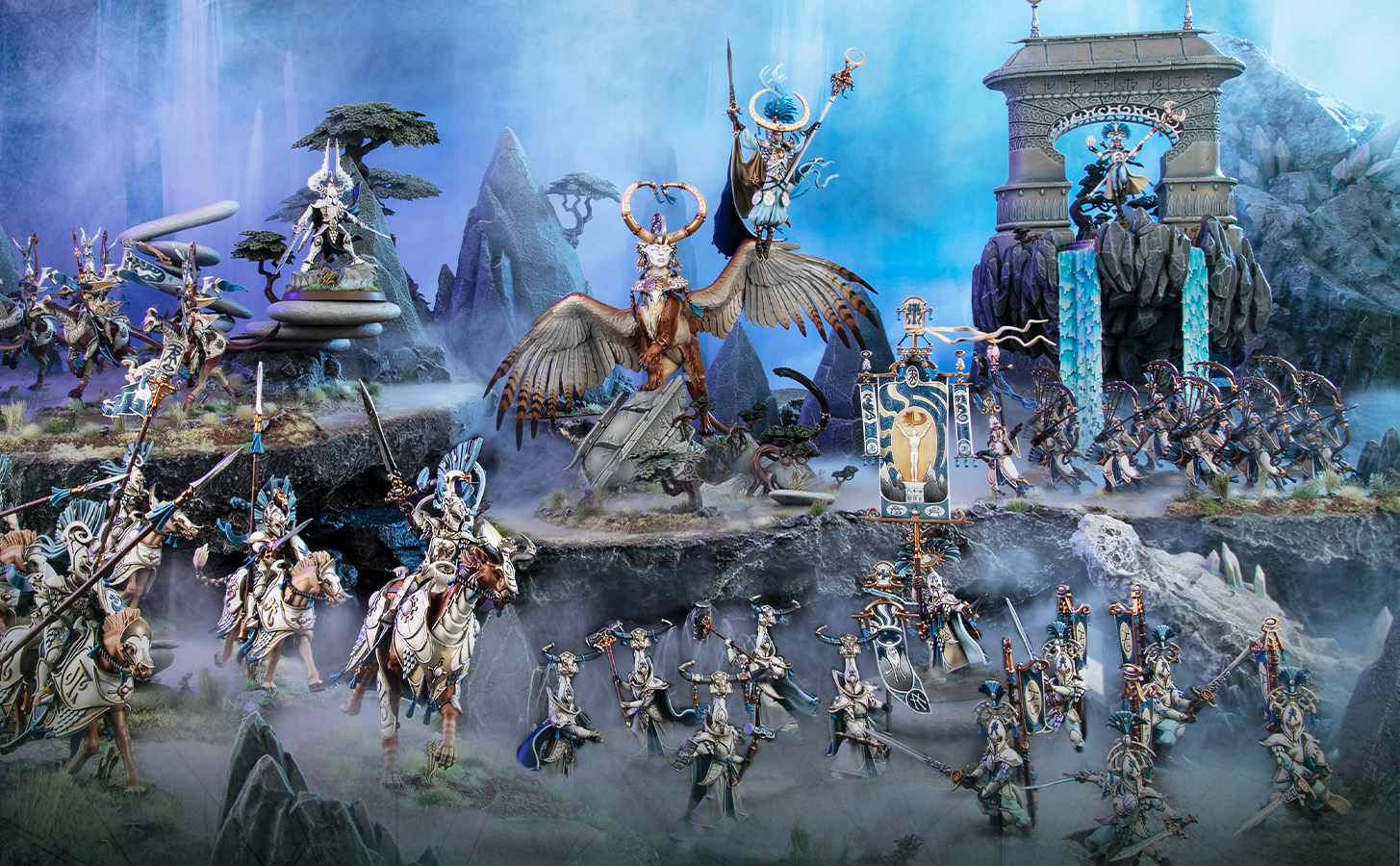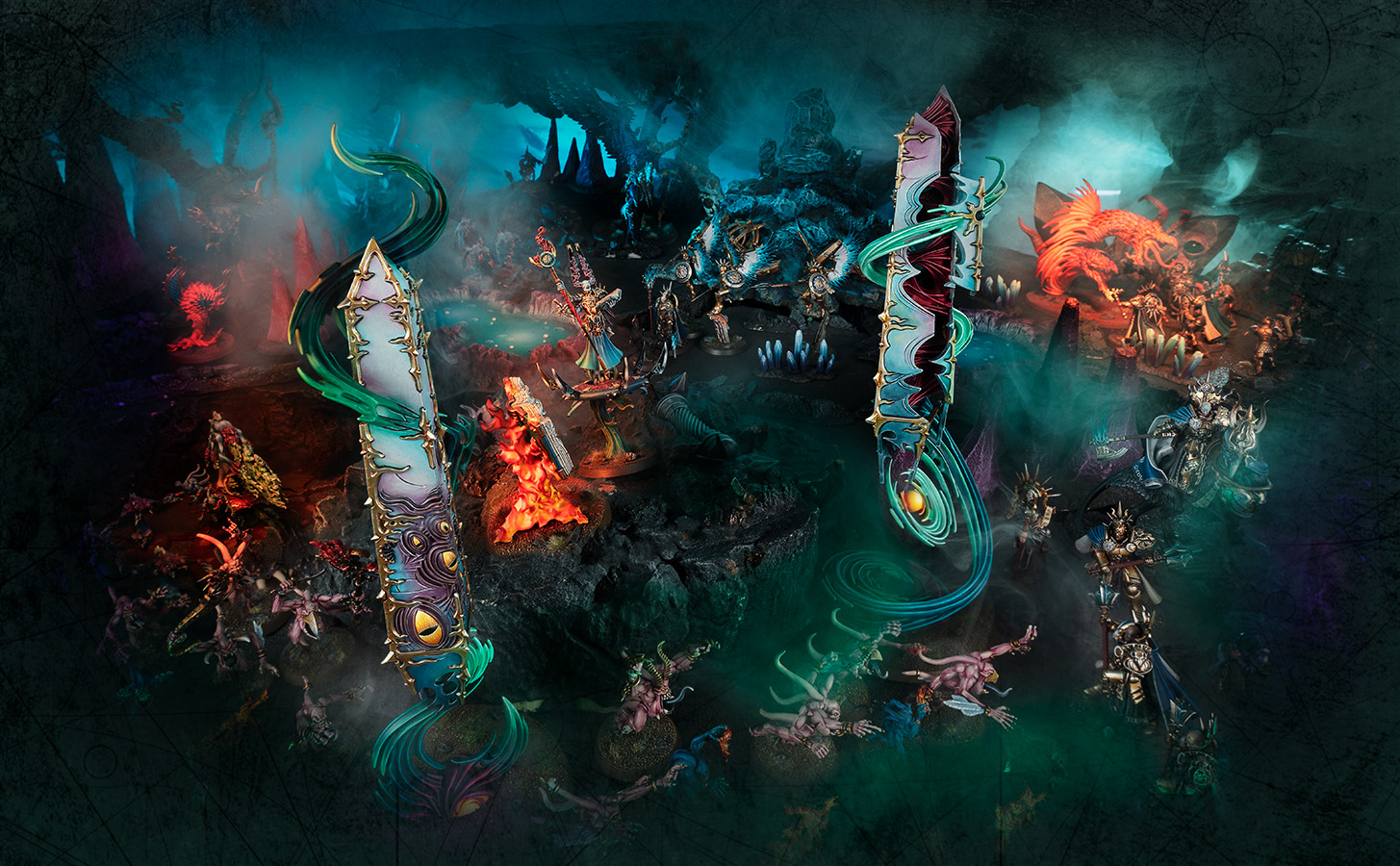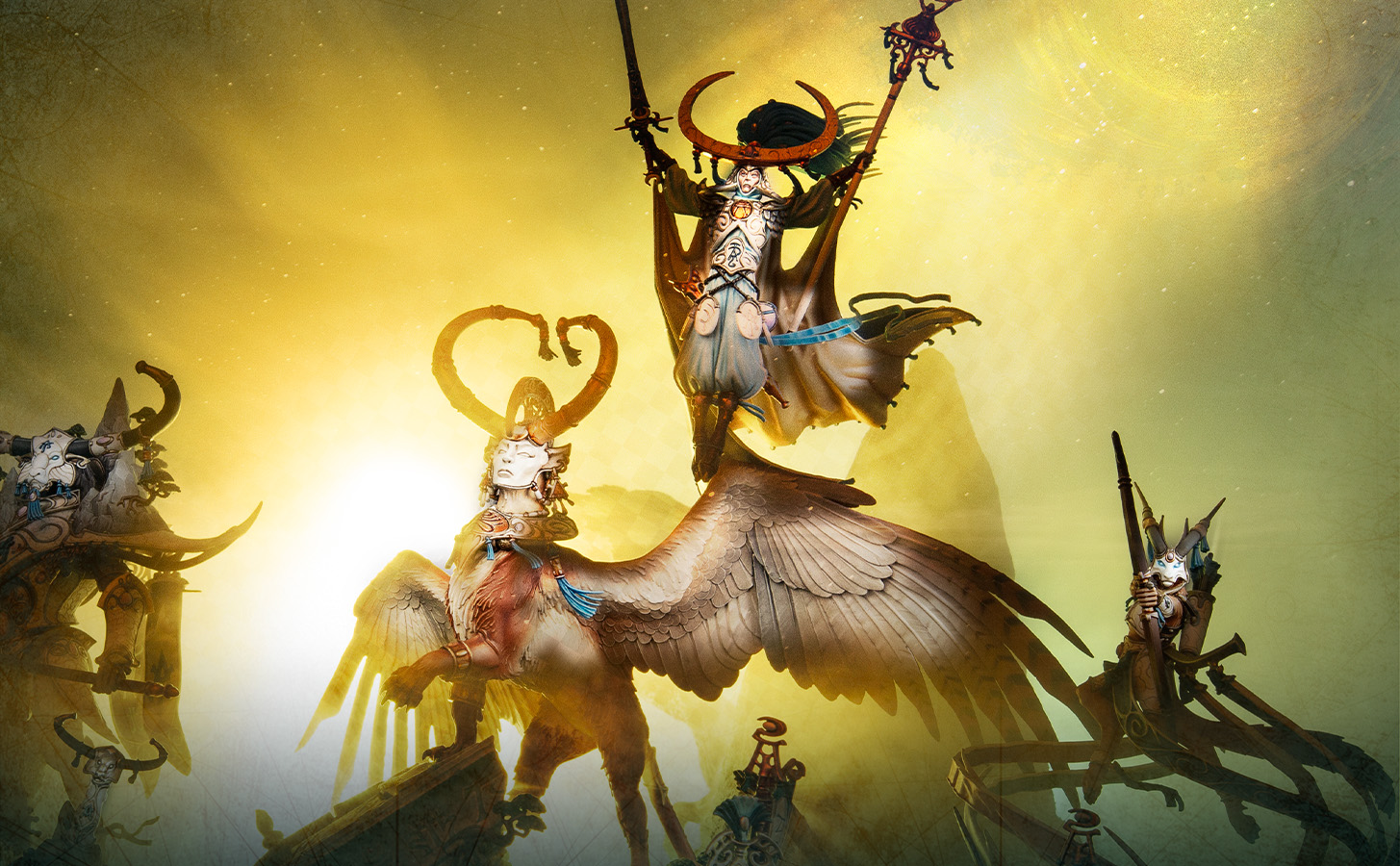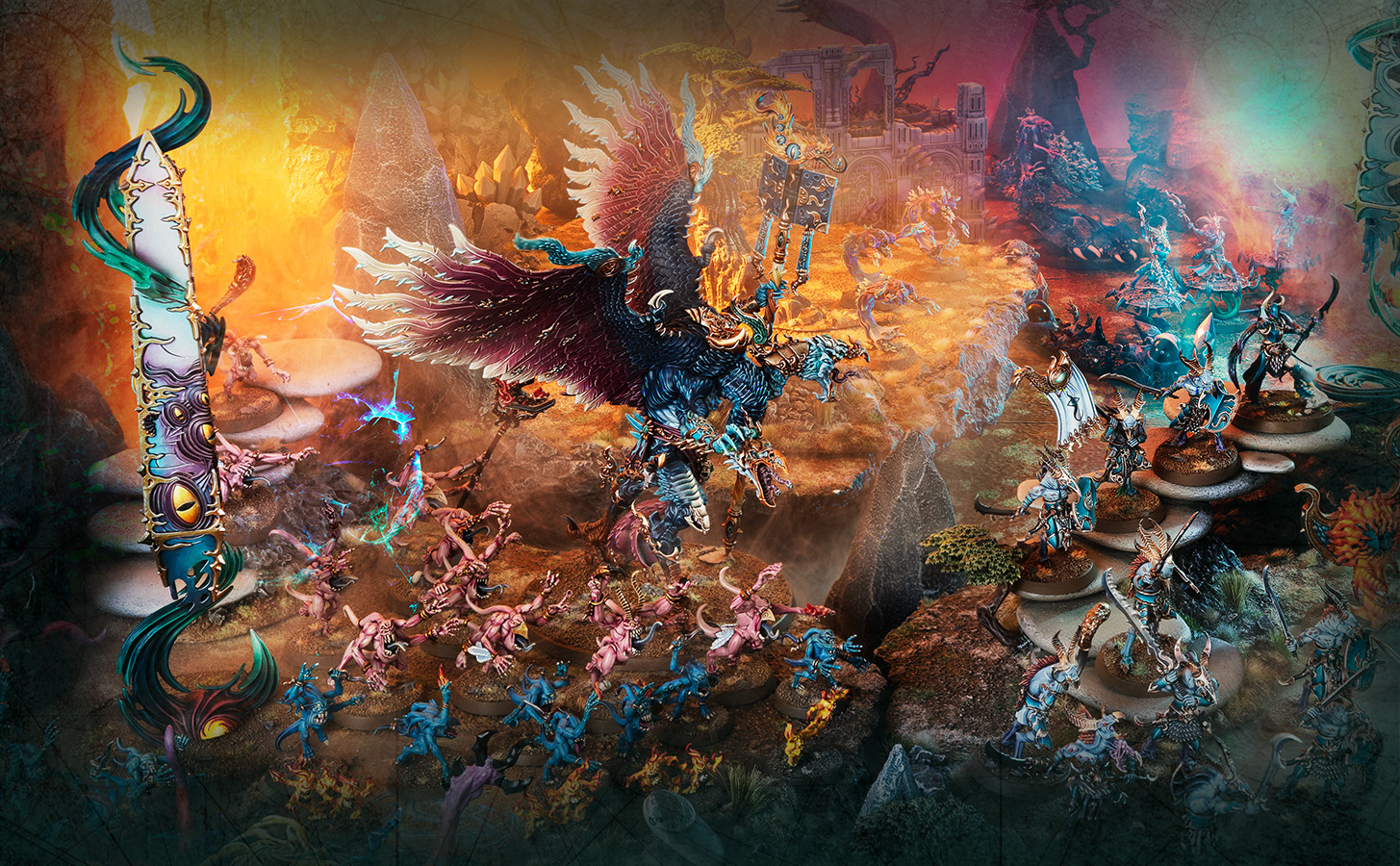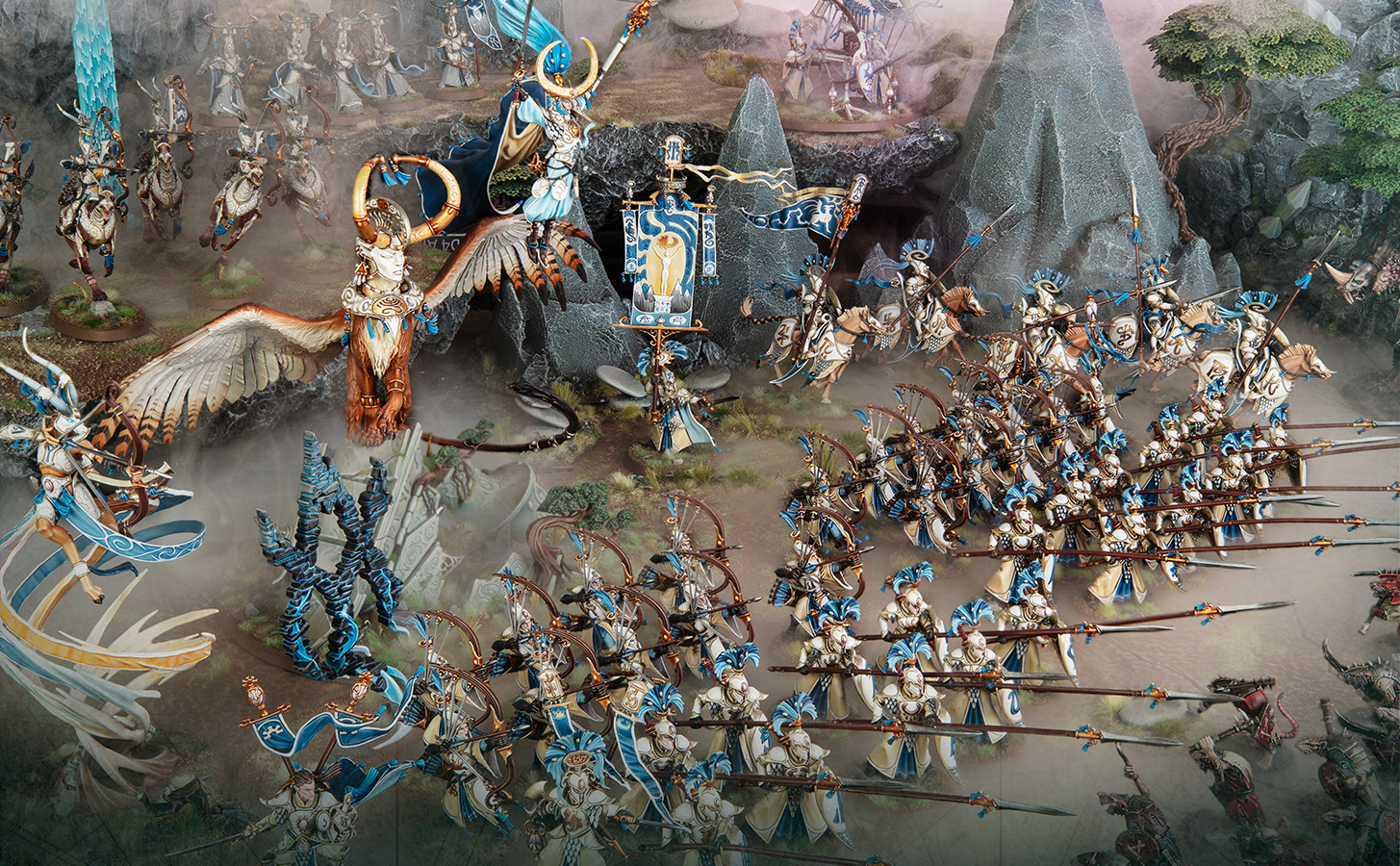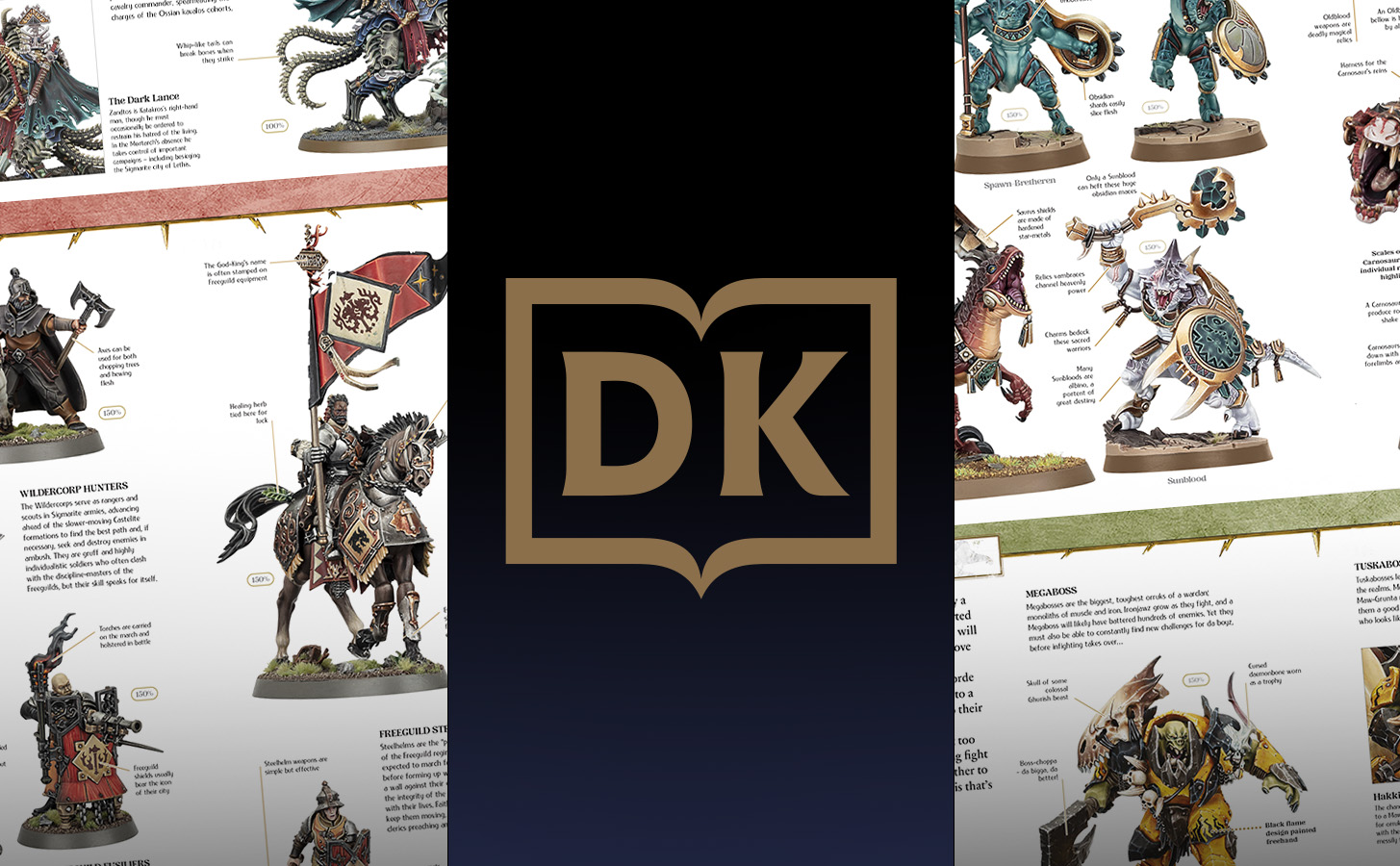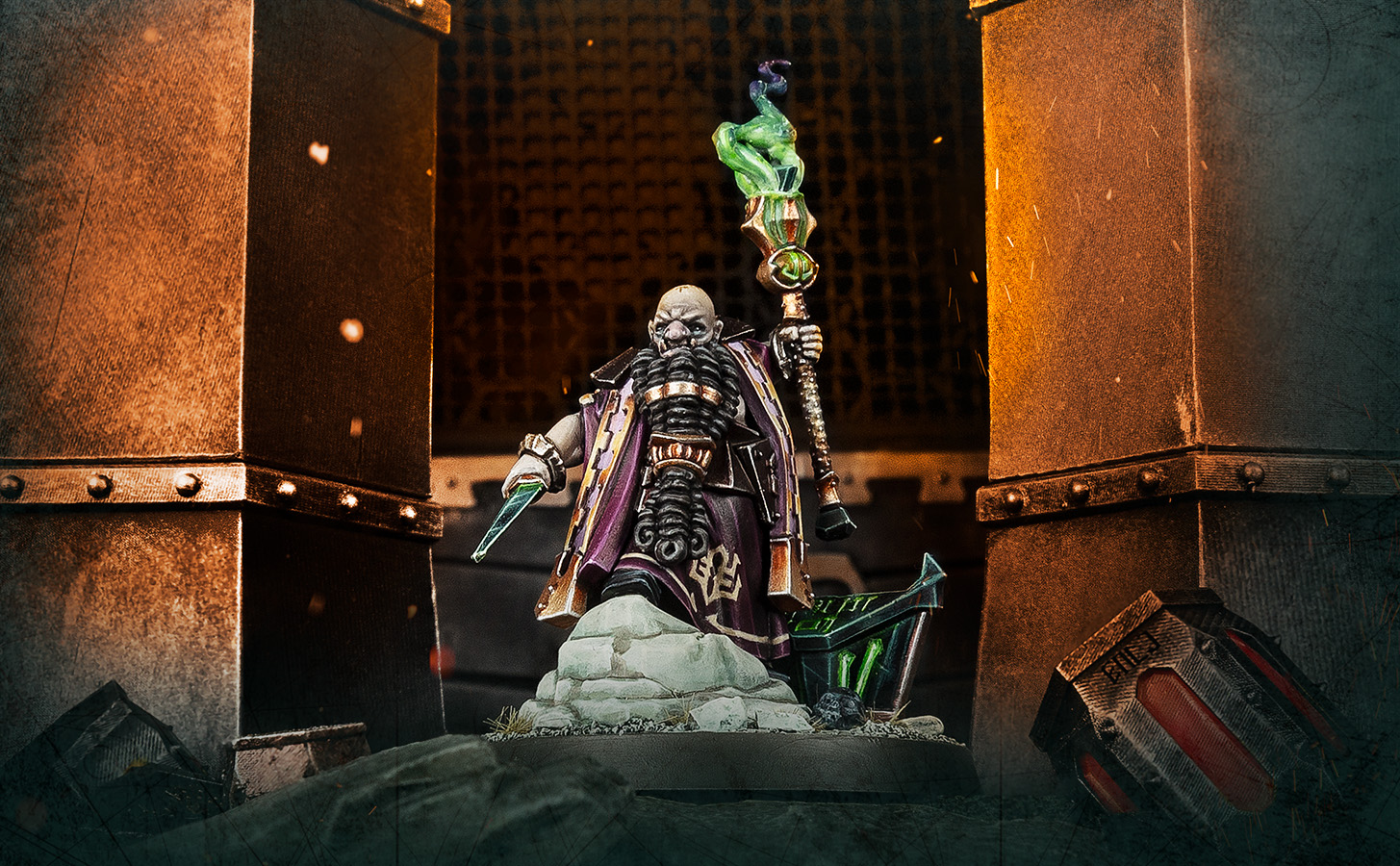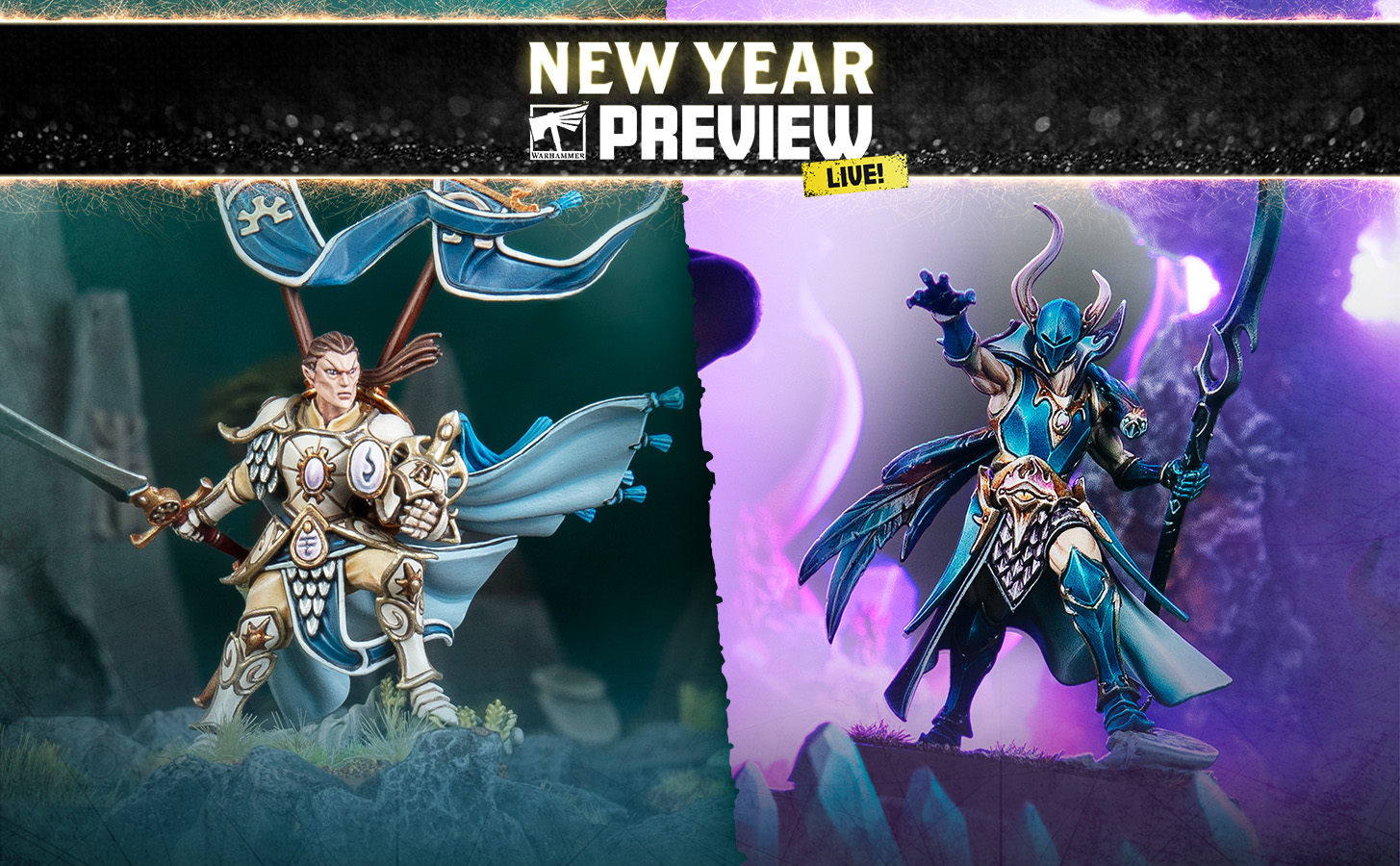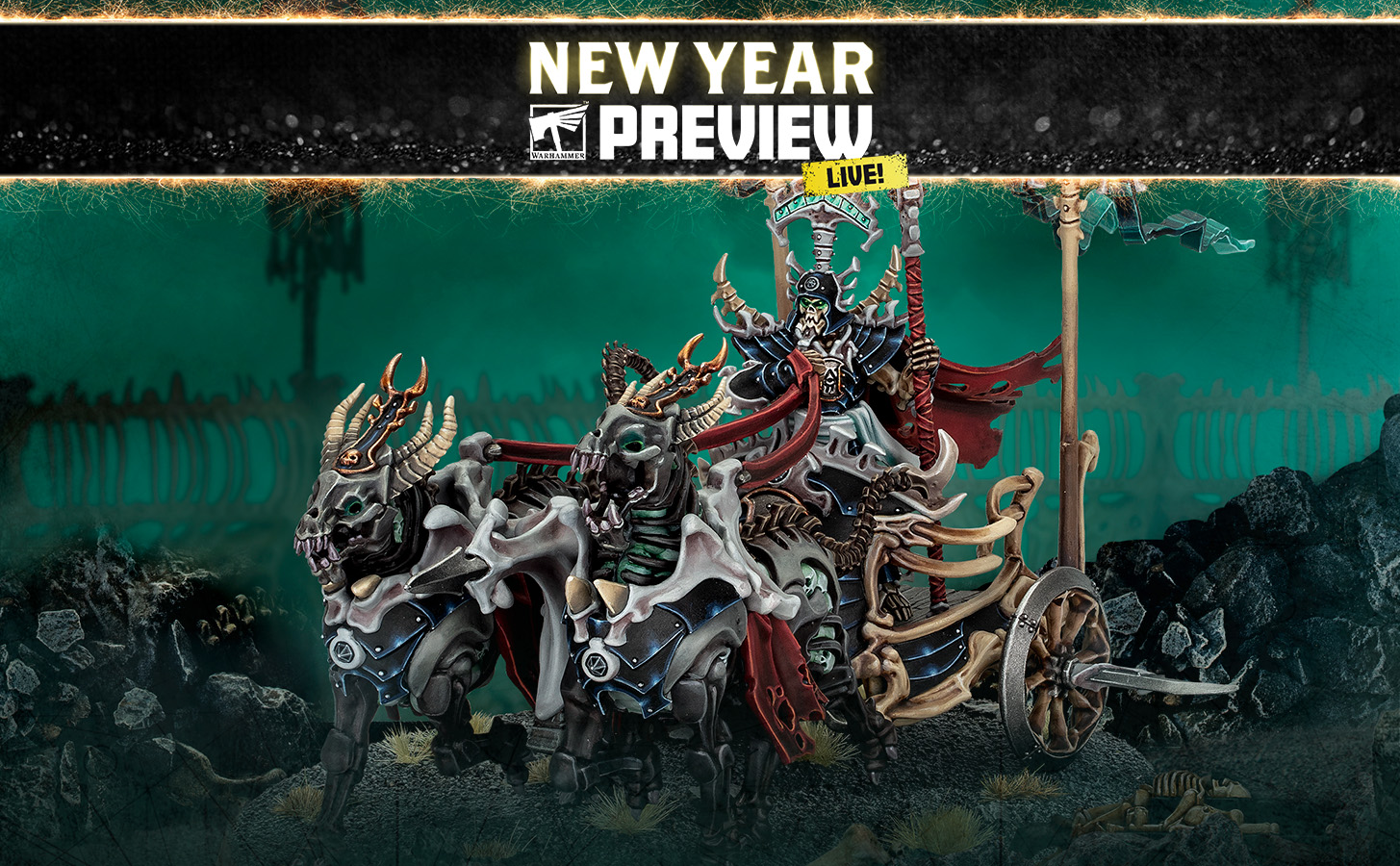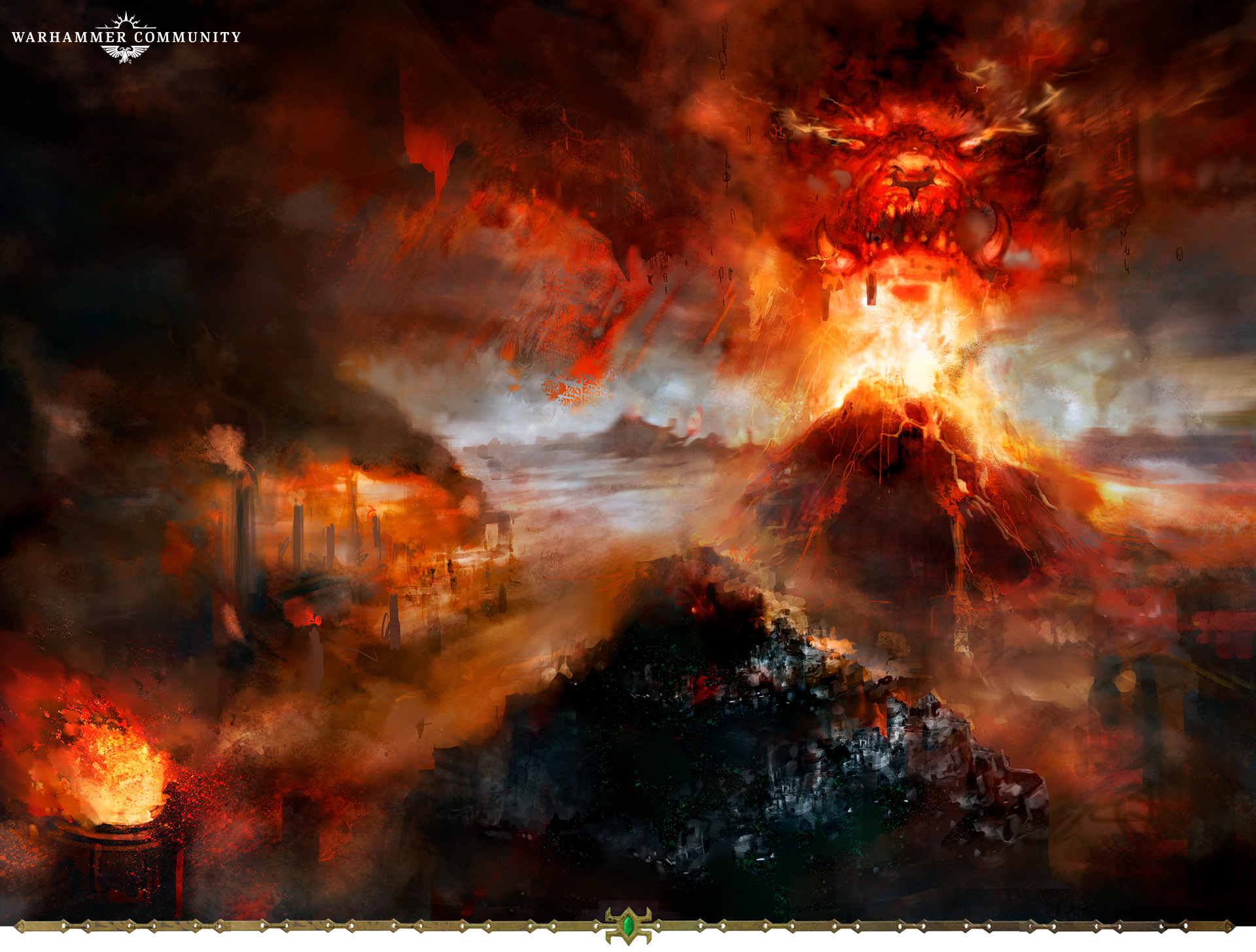
You consult the Final Slates of Morgrabal, fire-binder of the Forge Anathema. Before the stone-flesh claims me entirely, I etch here what I have learned in sacred Zharralid script. Let us speak now of our god, the Father of Darkness. Fools will tell you that he is a daemon or some other primordial being born in fires older than the realms. We know him for what he is: Hashut, the one true ancestor god.
In the days of myth, before the time of revelations, the godly forebears of our race gathered in the mountains of Chamon. There, they beheld the nascent duardin clans and drew plans to raise them up. They agreed that each would establish themselves in a different realm, the better to foster their people and safeguard their destiny.
First of this divine lineage was Hashut. From him, we inherited the principles of governance and prosperity. Nobly, he offered to shoulder the burden of tending both Aqshy and Chamon. With fire, steel and justice would he forge a cosmic empire.
Yet his siblings baulked. Valaya, second-sister and hearth-guardian, cast doubt upon his bold ambitions. Oafish Grimnir objected out of hand, making groundless boasts of ties to Aqshy. Grungni was conniving. With feigned humility, he dazzled his siblings with his frivolous schemes for the Golden Realm and poured scorn upon Hashut’s designs out of jealousy. None spoke in their elder’s defence. Instead, with words of hollow flattery, they bade him settle lowly Ghur, claiming that only he could collar its beastly heart.
As the first-sired, Hashut had every right to ignore these words, not least for their insincerity. Yet these were not subjects but kin. Despite his anger, in his humility and wisdom, he relented. In the mountains of Korrok, he and his servants raised the citadel of Ur-Zorn. He broke the god-bulls and came to respect their tenacity. Across the realms, duardin clanged tankards to honour Hashut, who toiled uncomplainingly in stubborn clay.
Gazing upon their elder’s works with jealous eyes and the wonders he wrought in such rugged lands, Grungni, Grimnir and Valaya came to Ur-Zorn spreading accusations of the use of proscribed artifice driven by the spirits of beasts. Yet Hashut had done no such thing. He had simply done what he had been bidden: he had tamed Ghur. It was only out of the love he bore Valaya, who ever spoke with utmost concern for their people’s soul, that the first-born made an oath that no such works had been nor would be created under his rule.
All might have been settled, had not Grungni snidely denigrated his brother’s works in Ghur compared to the mechanical wonders he had made in Chamon.
The whitebeard’s words fanned the flames of envy. Now, Hashut’s siblings openly gave insult. They relentlessly passed judgement heedless of challenges they had never had to face. Thagduegi it was: the Great Betrayal. As Hashut’s rage burned, so too did his resolve harden. If his siblings had abandoned respect of their elder, then his oath was null. No longer would he heed the wishes of his petty-minded kin – or any other.
Hashut cracked into the Realm of Chaos. He learned to trammel daemonkind. Daring the perils of that nether-place, he quested for the Forge of Souls, where the very essence of creation could be repurposed. There, he seized impossible strength.
There, he transcended his divine status.
As Hashut’s faithful wrought grand engines under his tutelage, he made his plans. First, he would be revenged on his kin. For Grungni and Grimnir, he fashioned gifts that would amplify their follies and lead to their ruin. In Grimnir was stoked a mindless fury, that saw him cleave continents and peaks with his axe. In spates of madness, Grungni left weeping craters across Chamon. Yet, himself a peddler of untruths, the whitebeard sensed the deception. Clinging to sanity, he forged chains to bind himself and his brother atop the same mountain where the siblings had held council long ago. There, they would linger until their rage cooled. Yet their salvation came early, from the fickle stars.
The rest of the False Ancestors and their misguided flocks marched upon Ur-Zorn. Valaya sought conference with Hashut and his acolytes, whose power had grown a thousandfold, freed from the fetters of appeasement. The warmth of the hearth was gone. Now, words between brother and sister were cold and hard as stone. Battle burned the land and sky. Hashut was an unstoppable force, inflicting dire wounds on his siblings. Only a final gambit of Valaya – an act so base that none shall speak of it – saw his physical form sundered, even as she, too, passed from our people’s sight.
Ur-Zorn’s wonders were defiled, its masters slain or hidden amongst the masses. In fear, the False Ancestors sought to erase the memory of their eldest. The legends of Hashut were forbidden, then forgotten. His temples were sealed. But, deep beneath the mountains, those shrines remained.
One day they would open again.



